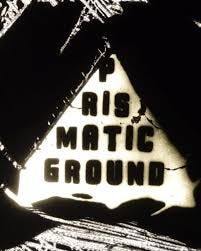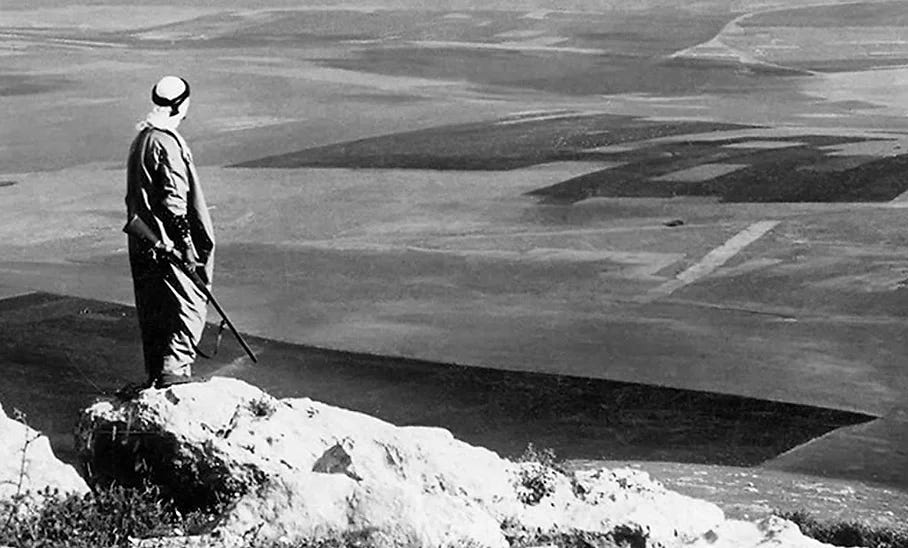Inney Prakash on Prismatic Ground
The festival programmer catches up with Culture Jam about the upcoming fourth edition of the avant-garde film festival.
I got to know Inney Prakash about two years ago when I worked at Maysles Documentary Center, where he worked as a programmer along with Emily Apter. Prakash is passionate about film, and about harnessing the generative potential that film has to affect others. He is inquisitive, generous, and committed to making a difference—not just in the landscape of cinema and film festivals, but on a societal level.
Prakash spoke to me about the upcoming fourth edition of his festival Prismatic Ground, which he began as an online endeavor in 2021. Since then, the fest has spread its territory and collaborates with several theaters around the city, including Anthology Film Archives and Light Industry. This year’s festival runs from May 8th to May 12th. Tickets and information can be found here.
This is the fourth year of Prismatic Ground. How do you feel? What have you learned from the previous iterations of the festival, and what are you still learning?
I don’t feel good, to be honest. The ongoing genocide of the Palestinian people and the failure of our institutions to meet the moment throws everything into relief. However, I have a deep love and admiration for all the films and filmmakers in the festival this year, and I hope bringing them together can feed people, energize them, strengthen solidarity and engender conversations about the kinds of art and institutions we need to be creating outside of the structures that have failed us.
I’ve learned a lot from previous festivals— the right length of programs, the significance of maintaining a free virtual selection, how to hone a curatorial vision in a city where there’s so much competition for showing new films, etc. I’m still learning a lot as well, but the most pressing thing right now is how to raise money. I had a little no-strings-funding for this year and the last, but I’m not sure where next year’s will come from, whose money I’m comfortable taking and who’s willing to give it.
Film festivals have not done a good job, to put it politely, responding to the current moment on a political or philosophical basis. I’m curious to know your thoughts about where these failures stem from and what Prismatic Ground may be able to do to address these issues.
I think these issues have stemmed from cowardice and institutional instincts towards self-preservation. The kinds of people who make it to leadership roles in large institutions are the kind who understand the game of capital and are willing to obey it at nearly any ethical cost. Only when public pressure makes their existence as jeopardized as the presumed financial consequence of taking a stand against and divesting from genocide will they adjust course. The forces of capital don’t have a conscience. That’s why BDS is so important. And that’s why Prismatic Ground has committed to PACBI— the Palestinian Academic and Cultural Boycott of Israel. I’d love to see more cultural institutions in the city follow suit.
However, I know Prismatic Ground is small and that’s what allows me to act with my conscience. Perhaps we need to invest our energy in more small, community based infrastructures. It’s because I’m fundamentally acting as an individual— not a company or even a non-profit, at this point— that I’m able to do whatever I want. I don’t have any illusions about the impact of my tiny film festival. Prismatic Ground is not going to end capitalism, I’m sorry to say. But that’s not an excuse to be complicit.
You’ve been very vocal in your support for Palestine. We’ve signed some of the same letters. Last month you withdrew yourself from the jury of HotDocs in protest of their sponsor’s financial ties to Elbit Systems, which is a “Defense” company. What do you think film festivals and their respective institutions should be doing differently, whether from a financial perspective or a programming perspective?
Well, HotDocs has failed on every front. They’re directly invested in genocide and their program lacked any meaningful presence of Palestinian films and filmmakers. Withdrawing was an easy sacrifice.
Showing Palestinian films is not enough, however. It’s the bare minimum for a festival at this moment. There has to be structural, material sacrifice and change. I’ve spoken to a lot of people ostensibly on the right side of things who disagree with this, but I believe that any film festival that can’t take an explicit institutional stance against genocide we’re better off without.
I’d love to see more festivals and cinemas, particularly those who have been vocal about Palestine, commit to PACBI. That’s a meaningful start.
Tell me about what ideas you were hoping to introduce in this fourth edition of the festival. What sort of work were you looking for, and how do you think the films in the festival communicate with one another?
On the surface I’m always looking for the following: 1) experimental/avant-garde form 2) BIPOC makers and 3) leftist agitprop and/or an abolitionist ethos. Every film in the festival meets at least one of these conditions, if not two or three, and these end up being three intersecting threads/conversations throughout the program. Obviously I also sought a healthy representation of Palestinian films this year. Not for points but to keep the larger cultural conversation centered where it should be.
Beyond that I’m simply looking to be moved or provoked in a profound way. That’s harder to articulate in concrete terms. For better or worse, the festival is my personal curatorial vision and reflects my individual tastes and interests. And I do think there’s a sort of spiritual throughline there. Although they can be very, very different on the surface, I don’t think any one film in the program wouldn’t create an interesting conversation with another.
This year I also started a class at The New School called “Counter-Curating: Alternative Film Festivals,” and the students helped screen and evaluate Prismatic Ground submissions with my oversight. They were incredibly thoughtful and the conversations I had with them certainly influenced some decisions. I’m very grateful to them.
Why is avant-garde cinema meaningful to you? Why is it important to you that it has a presence in our culture?
On one level, I just love it. It excites me, intellectually, emotionally, spiritually. But if I were to take a more philosophical stance it would be that avant-garde form cracks open the possibilities of what art can be, what the experience of art can be. It also finds ways of expressing values and ideas that simply can’t be articulated by mainstream narrative cinema, which in many ways serves to reinforce existing hegemonic values through its form alone. Through its oversimplification of experience and its manipulative approach to audience.
PG is a fest that is spread out across different cinemas, as well as the web. How do you think the venues partnered with the festival contribute on a spatial, theatrical level?
I think they’re fundamental to the experience of the festival. I partner with the venues I do because I love visiting them. And to a minor degree the films I choose for each venue are aligned with the kinds of work I love seeing there.
What are a few of the films that you’re particularly excited for? Maybe a few from different waves.
I always worry the shorts will get overlooked, so let me start there. Avant Seriana is one whose vivid 8mm images of Algeria keep coursing through my mind. It’s a reflection on homecoming, on inheritance, on fighting to overcome colonial ideology and indoctrination, to see a place as your ancestors did.
I’m super excited about the pairing of Frank Sweeney’s Few Can See and Onyeka Igwe’s A Radical Duet, which create a really interesting conversation about historical representation, absent archives and formal techniques of recreation. Both filmmakers will be present for a Q&A guest moderated by the brilliant writer/programmer Yasmina Price.
Then there’s a feature called Eros that’s worth a shout out. The filmmaker had couples visiting Brazilian love motels film themselves, having sex but also relating, talking. It’s kind of a high brow vérité art porno, which I admire. I think we need more images of sexuality than those fed to us by algorithms and mainstream porn sites.
My friends Kaleem Hawa and Nadine Fattaleh have guest curated a double bill of San Francisco Newsreels Revolution Until Victory a.k.a. We Are the Palestinian People (Newsreel #65) and Jayce Salloum and Elia Suleiman’s Introduction to the End of An Argument. Together these films deconstruct how mainstream media serves dominant ideologies and agendas. Obviously relevant. Kaleem and Nadine will introduce.
What is some of the film programming done lately that has been exciting to you? What have you seen? What are you looking forward to seeing?
Oh man, I live in New York City. We’re spoiled. Kaleem and Nadine have a series ongoing at Anthology— “Cinema of Palestinian Return.” Essential framing with some extraordinary deep cuts. The Shimizu series at MoMI/Japan Society is such a treat. Yasmina recently invited Ephraim Asili to host a program at BAM; he in turn invited the Konjur Collective to livescore analog films by Daichi Saito. Incredible evening of sound/vision/conversation. I admit to being a Loachhead, so I caught a few of those at Film Forum. I’d like to encourage people to turn out for Three Promises at DCTV, which will be running through the week after Prismatic Ground. Filmmaker Yousef Srouji found a trove of home video his mother compulsively shot during the Second Intifada and crafted it into one of the most moving experiences you’re likely to have all year. Adam Baran hosts a queer cinema series at Anthology Film Archives called “Narrow Rooms” and I’m very excited for the next edition, which will feature queer Super 8mm films from Brazil. I could go on…





